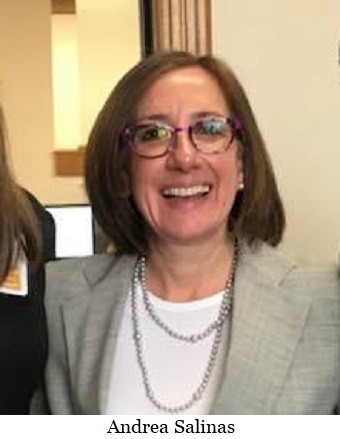Racial equity in the Portland area may not be the same in Harney County
During the past year, state agencies have taken extraordinary steps in the name of public health and safety. They have done this through implementation of Oregon Administrative Rules rather than by changing laws or Oregon Revised Statutes. Laws are only enacted by the Oregon legislature.
An Administrative Rule is defined as "any agency directive, standard, regulation or statement of general applicability that implements, interprets or prescribes law or policy, or describes the procedure or practice requirements of any agency".
There are a couple types of rules, Statutory Minor Corrections, Temporary Rules, and Permanent Rules.
- Statutory minor correction rules are things like spelling, agency or program name change, correcting address or contact number, etc. They do not change the intent or the action of the rule. (OAR 166-500-0047).
- Temporary rules are done to temporarily adopt new rules, amend or suspend existing rules and can only remain in effect no longer than 180 days. (OAR 166-500-0050).
- Permanent rules are done to adopt new rules, amend or repeal existing rules, or renumber an existing rule to a new number and has no automatic expiration. (OAR 166-500-0040).
The Oregon Liquor Control Commission in one of the state agencies that wrote temporary rules over the last year in the name of COVID-19 and in response to some of the Governors Executive Orders trying to soften the blow to the bar and restaurant industry.
At the beginning of the COVID-19 crisis, the Governor issued
Executive Order 20-07 closing all bars and restaurants effective March 17, 2020. It remained in effect till May 14th when she announced a “phased in approach†with
Executive Order 20-27. As restaurants throughout the state struggled and made individual choices to remain closed, offer take out, or attempt to re-open, little did they know the next wave was about to hit them. With Executive Order 20-65 the Governor once again closed bars and restaurants on November 18th.
However, by Administrative Rule, OLCC delivered a Christmas Eve gift to them. They passed a temporary rule allowing the sale of Mixed Drinks and Single Servings of Wine by Full On-Premises Sales Licensees for Off-Premises Consumption and Delivery. Otherwise know and “booze to goâ€. The OAR is in effect until June 22, 2021. OLCC saw this as a lifeline to bars and restaurants. In ac2352tuality it did little to bolster sales compared to actually being reopened which for most businesses would not happen until February 2021 or later with the Governor’s next Executive Order, 20-66 which set out to design a framed reopening approach with a sector risk level guideline administered county by county.
Now the Oregon Legislature is looking to add another layer to the Administrative rule making process. A proposal that could have stopped the OLCC “alcohol to go†lifeline dead in its tracks.
HB 2353, introduced by Representative Salinas (HD38-Lake Oswego) would require State Agencies to include in their rulemaking notice a statement identifying how adoption of rule will affect racial equity.
A D V E R T I S E M E N T

A D V E R T I S E M E N T
What if
HB 2353 had been in place for the OLCC rule was proposed? What could the possible affects have been on racial equity by implementing the rule? Could minority owned restaurants and bars have been adversely affected because of the additional cost of implementing the alcohol to-go options? Would they then have been negatively affected by other non-minority owned businesses in the area that could afford added costs? Then again, maybe the opposite statement could be said. Minority owed bars and restaurants could potentially have a lower overhead on their food items and therefore they could absorb the additional cost for the to go beverages. Where non-minority owned businesses might have a slimmer profit margin on their menu items and could not afford to offer the to-go cost of the alcohol items. Therefore, they would be at a racial disadvantage. Introducing racial equity questions without solid data to back up claims is a poor approach when setting Administrative rules. In addition, Administrative rules are primarily statewide and what is perceived as racial equity in the Portland Metro area may not be seen the same in Harney County.
This bill is scheduled for its first hearing on March 2nd.
--Terese Humboldt| Post Date: 2021-03-02 15:52:24 | Last Update: 2021-03-02 16:05:41 |







